What the experts say
Mid-career malaise impacts most physicians. This discontent is common in middle age. Physicians who have achieved acclaim and success aren’t immune to these feelings. Whenever I go to the doctors’ dining room or the surgical lounge, I constantly hear examples of career malaise, especially from mid-career and older physicians. Many physicians are stuck in a job or career they once loved, but today, their heart isn’t in it anymore.
In an ideal world, our work lives would be completely fulfilling, meaningful, and intrinsically motivating. But what if you’re stuck in a job or career you once enjoyed, but your heart isn’t in it anymore? Too many of us wallow in our comfort zones and take a grin-and-bear-it attitude that only magnifies the blahs.
Many physicians fit this profile. According to a Gallup survey, only one-third of U.S. physicians feel engaged at work, and only one in three consistently bring a high level of initiative, commitment, passion, and productivity to their jobs. That leaves most physicians less than satisfied with their work.
Identify the cause of discontent
Start by identifying the cause of your discontent.
According to a survey by Becker Hospital Review the challenges physicians often ranked as significant are:
- Administrative work — 66% (such as obtaining prior authorization)
- Reimbursement issues — 57%
- Staffing shortages — 56%
- Staff turnover — 50%
- Electronic health record reporting — 50%
- Billing and coding requirements — 49%
- Malpractice premiums — 40%
- Competition from nonphysician practitioners — 33%
- Collecting payment from self-pay patients — 29%
It is important to decide if the problem is the practice or you don’t enjoy being an employed physician. At mid-career, you must consider your spouse’s career, your children’s educational needs, and the geographic location where you live and work.
Start with small changes
See if you can find small changes to bring more joy and satisfaction in your practice. Maybe you can’t change practices, but you could make micro-adjustments to make the situation more tolerable. For example, if you are a middle-aged physician and entering data in the EMR is daunting, consider asking for a scribe to do the data entry so you can concentrate and focus on the patient. If you have morning obligations that make it difficult to start your clinic at 9:00, try to negotiate different work arrangements or schedules. Adjusting your routine can have a positive impact on your outlook and perspective. The key is being flexible in what you choose, whom you choose to do it with, and where you choose to do it.
If you find that working 60+ hours a week and taking calls impact your work-life balance, consider cutting back your hours and opting out of calls. Of course, this will require an adjustment in your salary.
Focus on learning
One of the most significant issues of middle-aged physicians is boredom. Perhaps you miss that dopamine rush that comes with repeatedly doing tasks and procedures. For example, I enjoyed treating erectile dysfunction using an inflatable penile implant. After conducting more than 3000 of these procedures, I became bored with the operation. I shifted my focus to female sexual dysfunction, a condition in its infancy where I was able to learn the management of these patients and was able to market my interest and knowledge on my website, writing articles for local publications and making multiple TV appearances to discuss the topic with the public. If you can do something interesting, this will lessen the boredom and will allow you to learn and grow.
Making a career change
Our medical practice would be completely fulfilling, meaningful, and intrinsically motivating in a perfect world. If you’re stuck in a practice you once loved, but your heart isn’t in it anymore, then maybe it is time to consider a career change and even make a dramatic move. When experiencing one or more signs of burnout, that may be the time to make a change. If you stay disconnected at work, you can anticipate that the quality of your work will decline, your patient satisfaction scores will plummet, and your online reviews will drop. While many doctors say it’s the income that keeps them in an unfulfilled job, quite often, the loss of autonomy and loss of control that is the motivation for changing careers. Changing careers in midlife and leaving your comfort zone is intimidating, but making a change can be challenging, exciting, and even rewarding. After just a few months in a new career, many doctors who change careers state, “I should have done this sooner!”
Ignite your passion outside of work
It might be a hobby you haven’t had time for or a side hustle where you can experiment with innovative or entrepreneurial ideas you have put on the back burner. Having an outlet outside of clinical practice can counterbalance the monotony of clinical medicine. These new endeavors can have positive spillover effects, providing energy and inspiration to overcome the blahs.
For example, my hobby is magic, and I have taken lessons from a local magic teacher. I started doing shows at local schools using magic to teach about the dangers of drug and alcohol abuse. This offers me almost as much gratification as providing care for patients.
Bottom Line: Having blahs at mid-career is common and contributes to burnout. There are options available to all of us. There is no perfect time to make adjustments in your career. But think, if not now, when?”
15% Off Medical Practice Supplies
VIEW ALL
 Manual Prescription Pad (Large - Yellow)
Manual Prescription Pad (Large - Yellow) Manual Prescription Pad (Large - Pink)
Manual Prescription Pad (Large - Pink) Manual Prescription Pads (Bright Orange)
Manual Prescription Pads (Bright Orange) Manual Prescription Pads (Light Pink)
Manual Prescription Pads (Light Pink) Manual Prescription Pads (Light Yellow)
Manual Prescription Pads (Light Yellow) Manual Prescription Pad (Large - Blue)
Manual Prescription Pad (Large - Blue)__________________________________________________
Appointment Reminder Cards
$44.05
15% Off
$56.30
15% Off
$44.05
15% Off
$44.05
15% Off
$56.30
15% Off

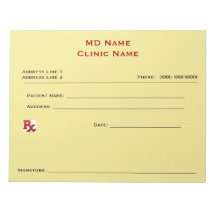
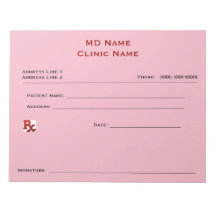
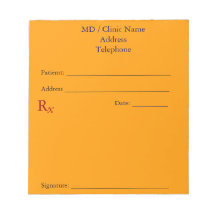
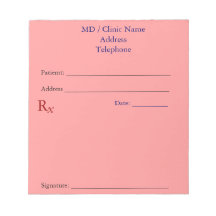
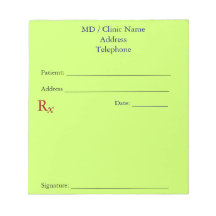
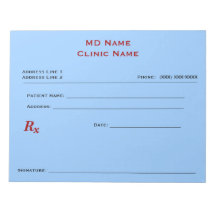
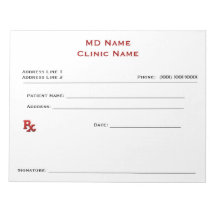
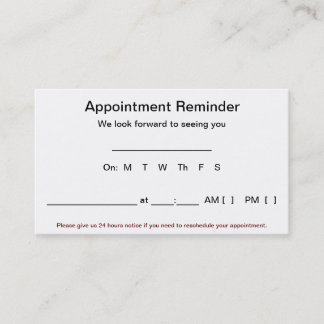
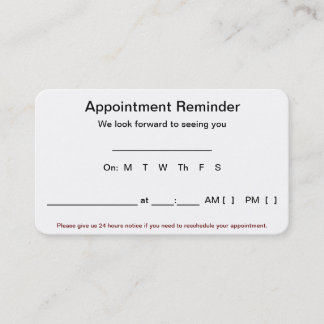
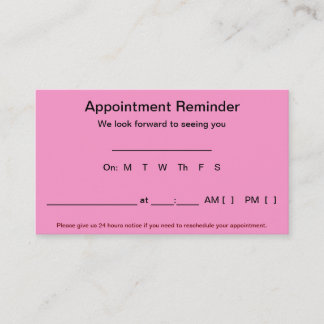
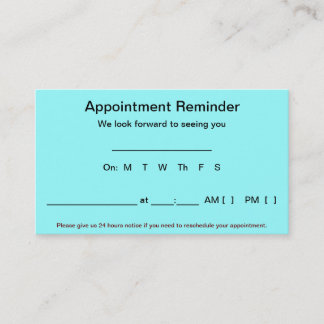
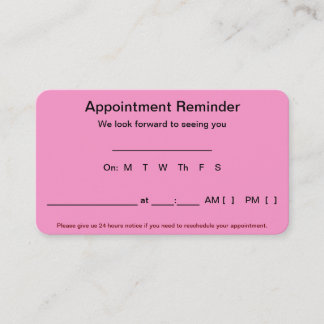
No comments:
Post a Comment